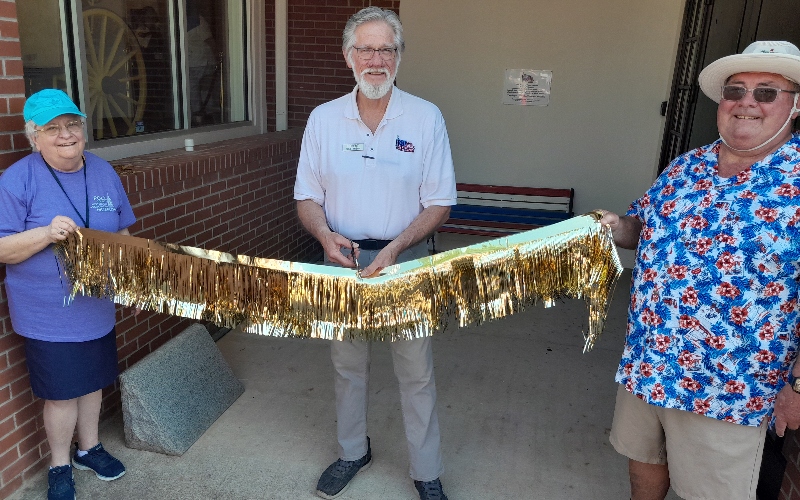Diet & Exercise: Vitamin D helps people lose weight, improves strength, brightens days
Published 8:00 am Friday, April 13, 2018
These days, it’s difficult to pick up any health publication without reading something about vitamin D.
Actually, vitamin D isn’t a true vitamin at all, but rather a group of fat-soluble secosteroids that act more like hormones. Today, though, we’ll just refer to it as vitamin D, which plays a role in every system in the body.
The two most important forms of vitamin D are vitamin D3 (cholecalciferol) and vitamin D2 (ergocalciferol). D3 is the naturally occurring and most biologically active form of vitamin D, and is found in humans and animals. Vitamin D2 is used to fortify and is found in some plants.
Both of these forms can be ingested from the diet and supplements. Vitamin D is also called the “sunshine” vitamin, because unlike other nutrients, it’s produced by our bodies as a response to sun exposure.
So just what does this super nutrient do for us?
Well for starters, vitamin D builds strong bones. It does this by helping us take up and use calcium, thereby preventing osteoporosis, breaks, and even sprains.
Here are other benefits derived from vitamin D:
• D helps regulate insulin levels. By doing this, the body is better at absorbing and using sugars for energy. This also means that this vitamin helps reduce the likelihood of developing diabetes.
• Vitamin D has anti-cancer properties. Some studies show the hormone calcitriol (what vitamin D in converted into) is able to slow blood vessel growth in cancerous tissues. That reduces proliferation (the number of cancer cells) and metastases (cancer growth).
• Helps with weight loss. That’s right, vitamin D regulates appetite, which can help you feel fuller, sooner, so you don’t over eat.
• Boosts testosterone levels. This in turn enhances lean muscle mass, mood and sex drive.
• Reduces flu risk. Vitamin D reduces risk for flu, colds and other infections. In fact, one study suggests taking vitamin D is as effective at combating colds and flu as taking a vaccine.
• Lung function. Vitamin D helps us breath better by helping take in more oxygen.
• Improved athletic performance. By increasing lung efficiency alone, vitamin D assists athletic performance, but it does even more. This nutrient increases insulin sensitivity, which increases energy. Also, by increasing calcium uptake, D strengthens bones which obviously makes better athletes, but calcium also is needed to build muscular strength.
Calcium is also needed to build connective tissues, and remember, muscles are only as strong as the tendons that hold them to bones. Calcium is also needed for muscle contraction.
• Enhanced mood. There seems to be a link between vitamin D being called the sunshine vitamin and mood. Sunlight combats a condition called “Seasonal Affective Disorder.” SAD is a condition where some individuals experience depression during long cold winters.
• Vitamin D keeps children healthier, by helping prevent the development of asthma, eczema and other allergic diseases. It also keeps blood vessels healthier.
Many folks don’t get enough vitamin D. It’s estimated that 1 billion people are vitamin D deficient.
Factors that contribute to this deficiency can include poor diet, time spent indoors, sunscreen (even SPF 8 can block up to 98 percent of vitamin D uptake) use, and geographic location.
Also, remember the particular sun’s rays that help produce vitamin D can’t penetrate glass, so you can’t produce it while in a car or sun room.
Vitamin D is measured in international units, and it’s possible to get too much. Taking 40,000 IU every day for two months or more, or taking a very high dose 300,000 IU in a 24-hour period could produce toxic effects.
The recommended daily amount of vitamin D according to the Food and Nutrition Board is newborn to 12 months: 400 IU; children 1-13 years: 600 IU; teens 14-18 years: 600 IU; adults 19-70 years: 600 IU; adults 71 and older: 800 IU; and pregnant and breastfeeding women: 600 IU.
Foods that provide vitamin D include fatty fish such as salmon, tuna, and mackerel, beef liver, cheese and egg yolks. Many breakfast foods provide the vitamin, like orange juice, margarines, soy milk and cereals.
Diet or exercise question? Email at dwcrocker77@gmail.com or text 864-494-6215. David Crocker, of Landrum, has been a nutritionist and master personal trainer for 30 years.





